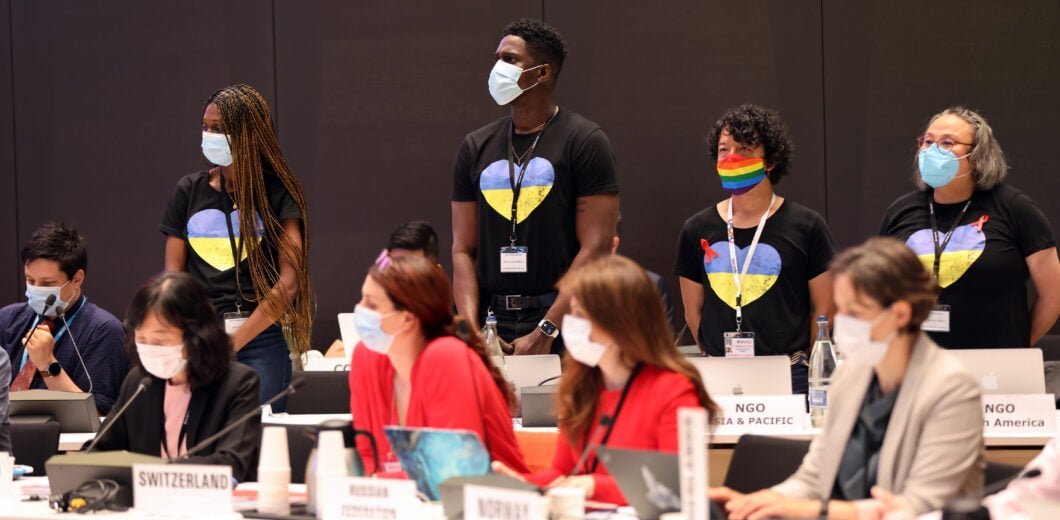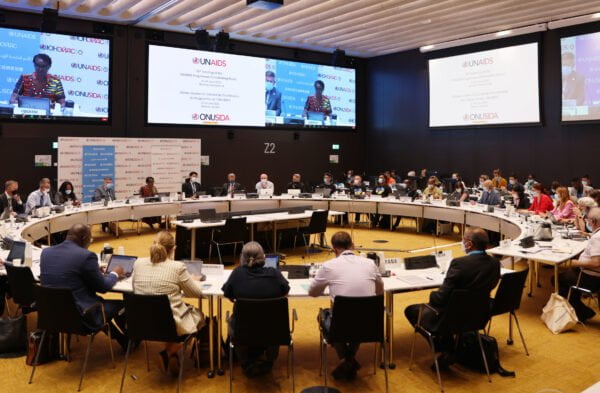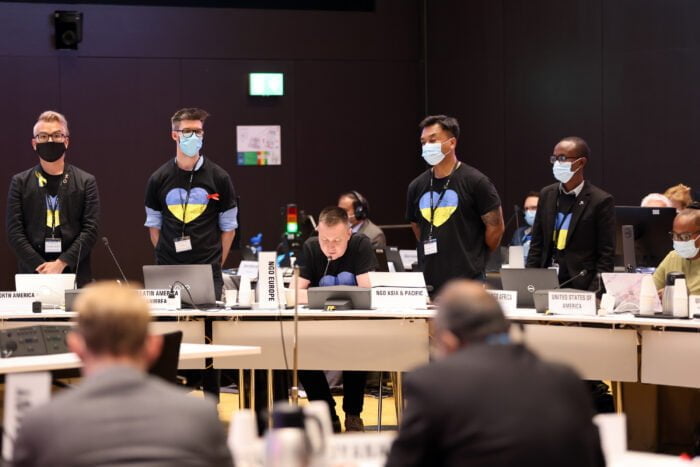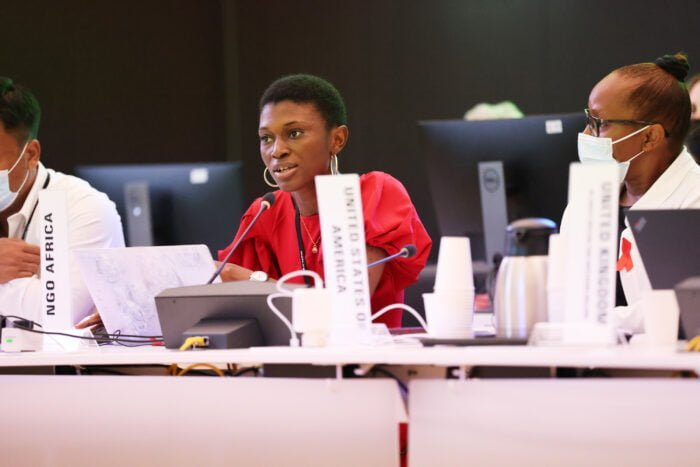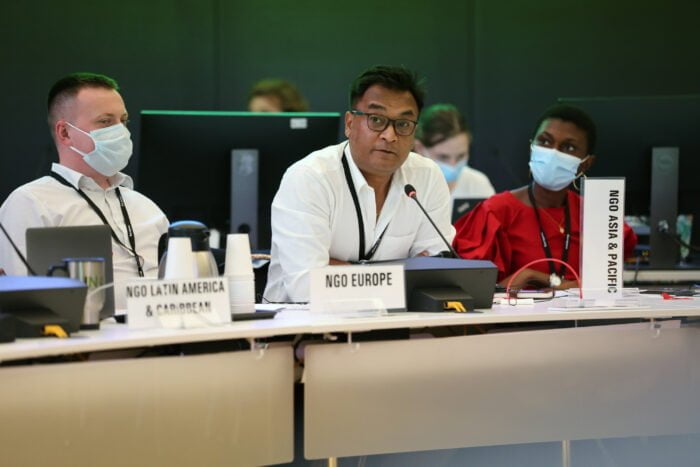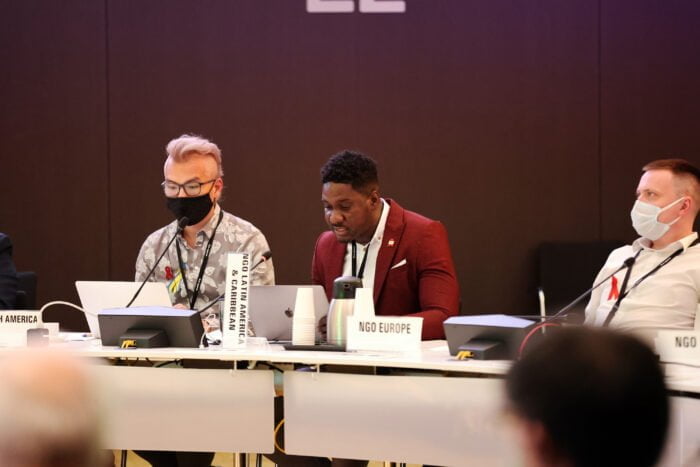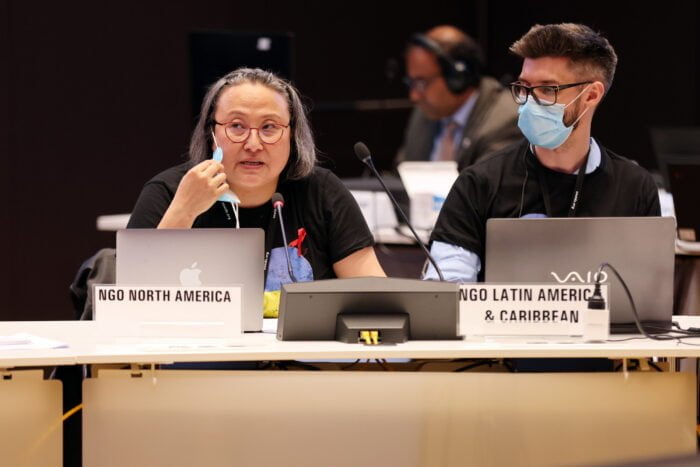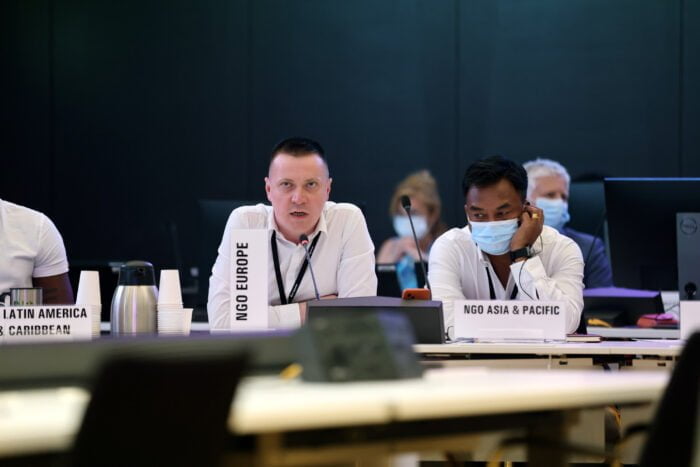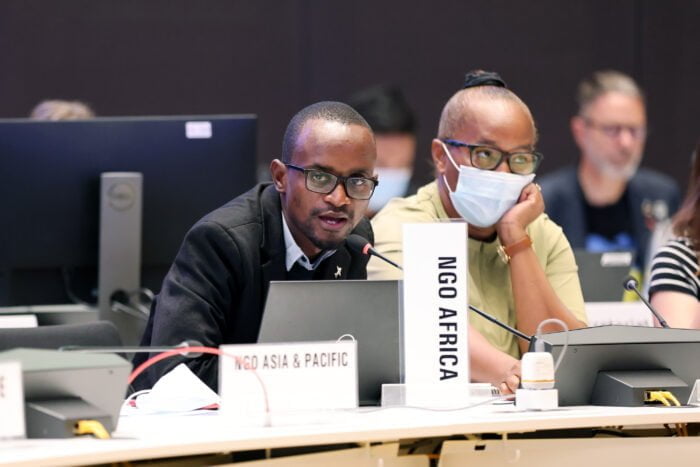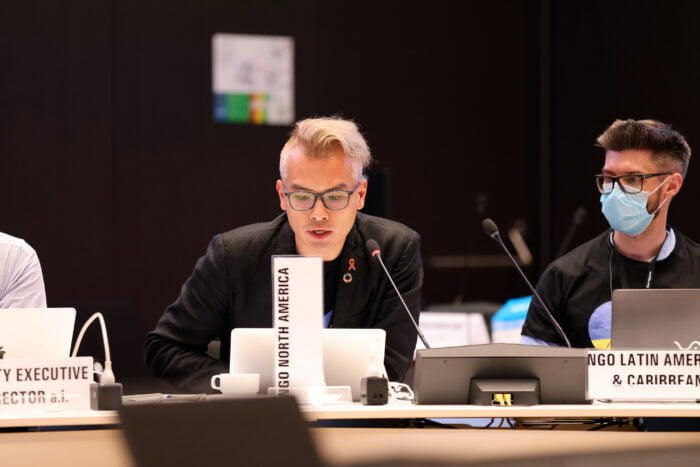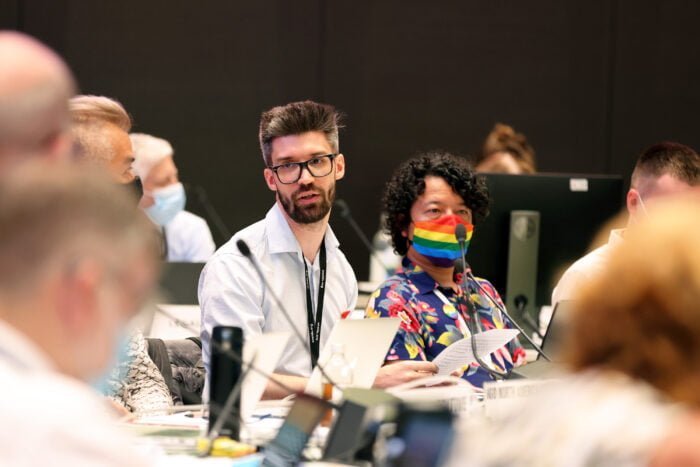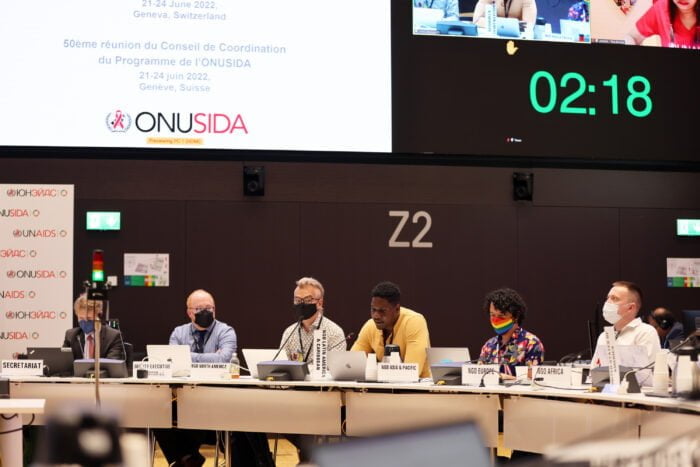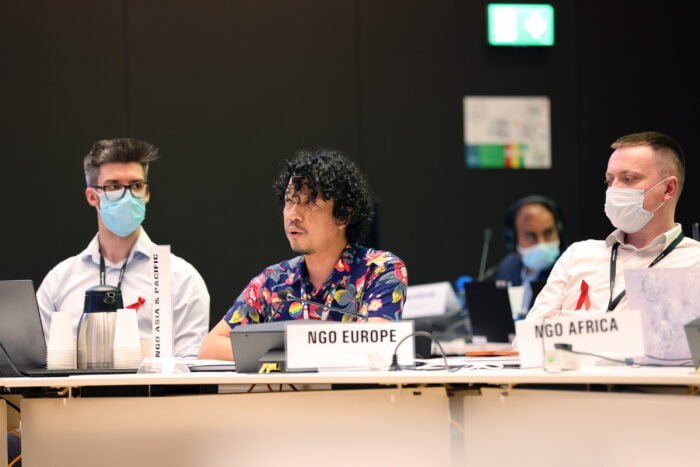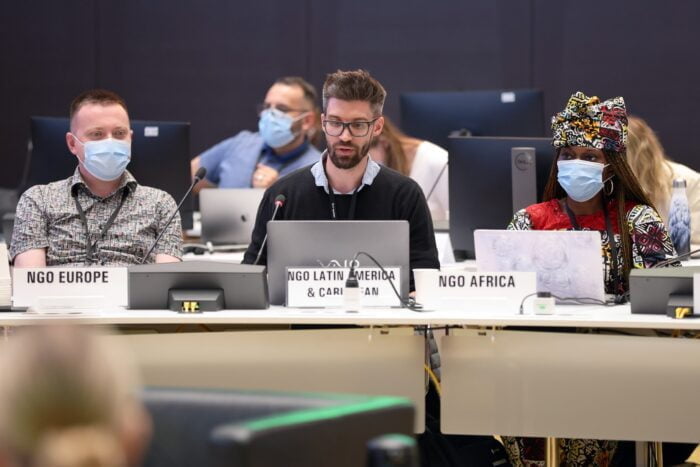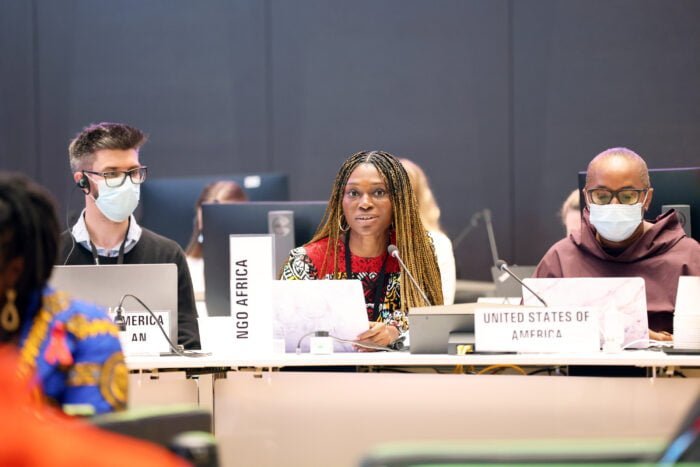
Thank you Chair,
I speak on behalf of the NGO Delegation.
As a delegation, we appreciate the Secretariat for developing an ambitious and complex UBRAF Indicator Matrix evaluation framework and applaud the inclusion of working group members from civil society to support its development. While it is an undoubtedly innovative framework, we have a few suggestions for you to consider:
First, while holding in mind the impact of the COVID-19 pandemic on the under-reporting of the 2020 GAM data, we nonetheless find it troubling that the Joint Programme Outcome 1 on adults and children with suppressed viral loads is benchmarked at 66%, a glaring disconnect to the Global AIDS Strategy target of 95% by 2025. As people living with HIV, we are not afraid to say this: we deserve better.
Second, we ask Member States, including donor countries, to invest more effort and resources to ensure the reporting of the GAM data is timely and complete so the UBRAF baseline estimates and targets are accurate. To further finetune HIV/AIDS data, we recommend member states to invest in the building of necessary infrastructures to support community-led monitoring and evaluation of programmes, services, and HIV policies. Triangulating CLM data and national GAM data can identify gaps requiring urgent attention and accelerate the attainment of UBRAF outcomes linked to the global targets.
Third, to support the ending of inequalities agenda, we encourage further granularization of certain data within the matrix. Disaggregating data in Results Area Indicator RA8.2.2 and Strategic Output Indicator S1.2 can make visible the number of key population networks that have received technical support, and provide data on equity-seeking sub-priority populations such as people in incarceration, migrants, and Black, Indigenous and People of Colour who can benefit from meaningful engagement and leadership development within the global HIV/AIDS response.
Fourth, we call on UNAIDS to ensure indicators within the matrix reflect advances in science, such as including dapivirine rings, long-acting injectables and U=U as part of the indicators. Also, key populations should be described in a consistent manner. In Results Area 1.1.1, the following phrase was used: “people who use drugs (in all counties where people inject drugs).” While the wording was likely chosen to ease political tensions, we now know we should not fall prey to those who do not respect human rights, spread disinformation, and attempt to stall the path to progress.
Please take note that a lack of political commitment and the prioritization on neoliberal performance reporting have caused entities to divert valuable attention and resources to spreadsheets and percentages rather than real people. We wish to reiterate the accountability expected of Member States, the Joint Programme and the Co-Sponsors is on us – people living with HIV and key priority population groups. If you want real, valid, unfiltered evaluation feedback, ask us.
Lastly, we sincerely thank the UK and Germany for announcing their pledges yesterday, and we request all Member States to act in solidarity to fully fund UNAIDS and the UBRAF at this critical juncture.
Thank you!
